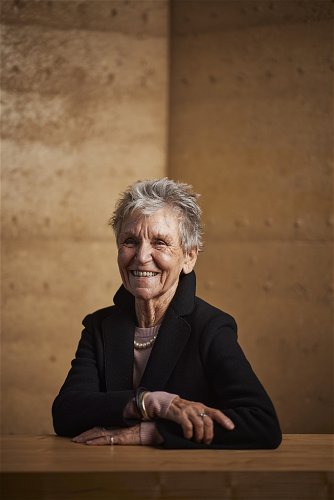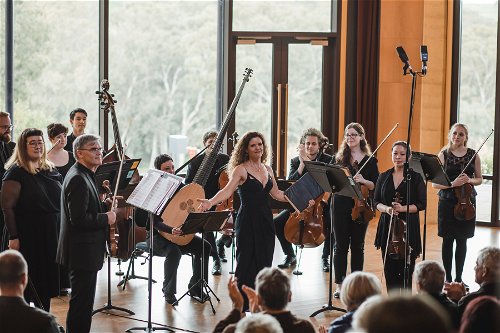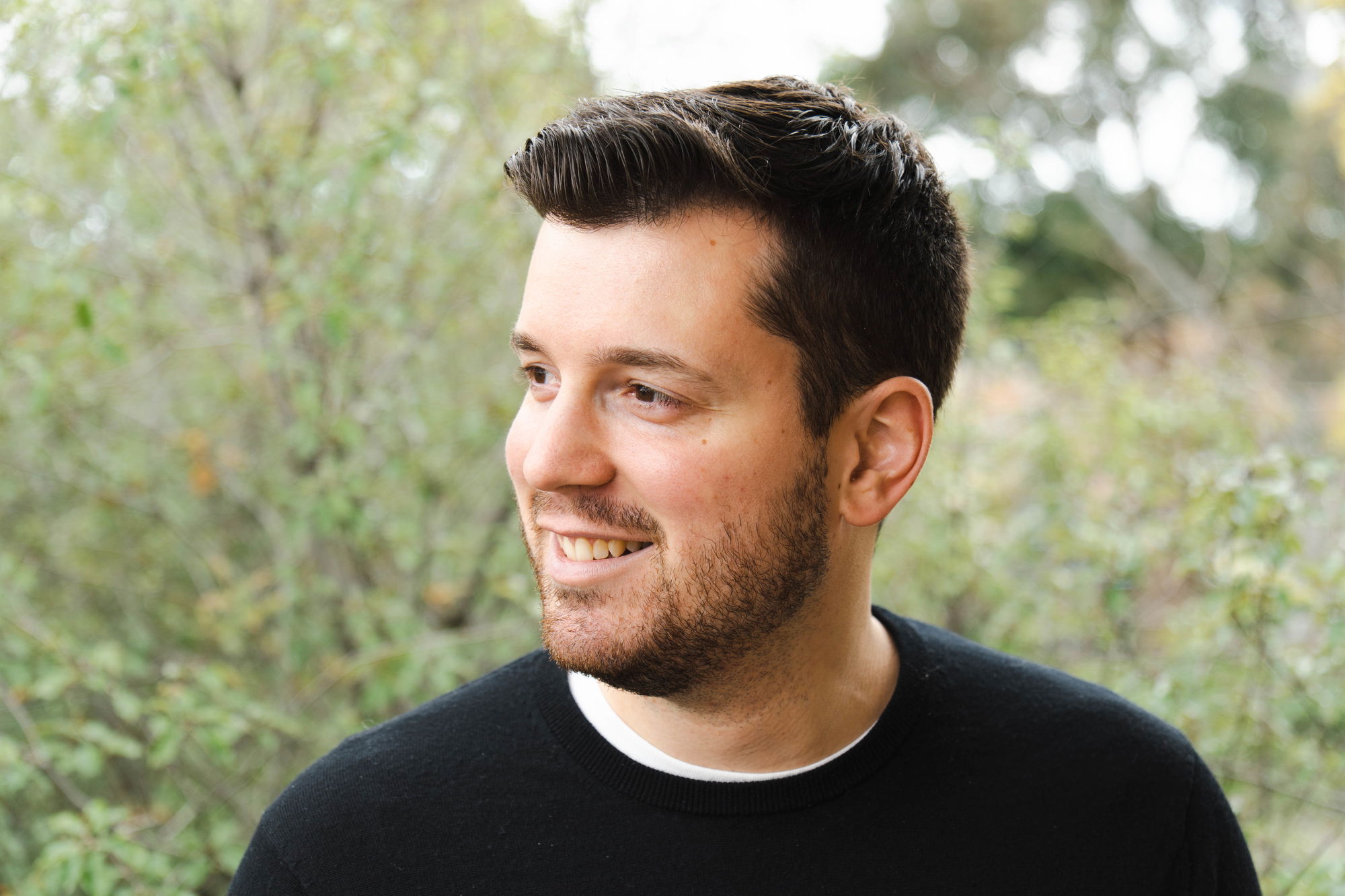
AN INTERVIEW WITH AUSTRALIAN COMPOSER, HARRY SDRAULIG
INTERVIEW BY UKARIA COMMUNICATIONS COORDINATOR, RACHEL BRUERVILLE
SEPTEMBER 2023
On Sunday 8 October, Diana Doherty (oboe), Joshua Batty (flute), Todd Gibson-Cornish (bassoon) and Louisa Breen (piano) will come together at UKARIA to present a program bookended by music by the talented young Australian composer Harry Sdraulig, including a brand-new work specially commissioned for this performance by Andrew and Renata Kaldor.
We're very grateful to Harry for taking the time to chat with us about how this new work came to be, and providing some fascinating insight into his compositional process.
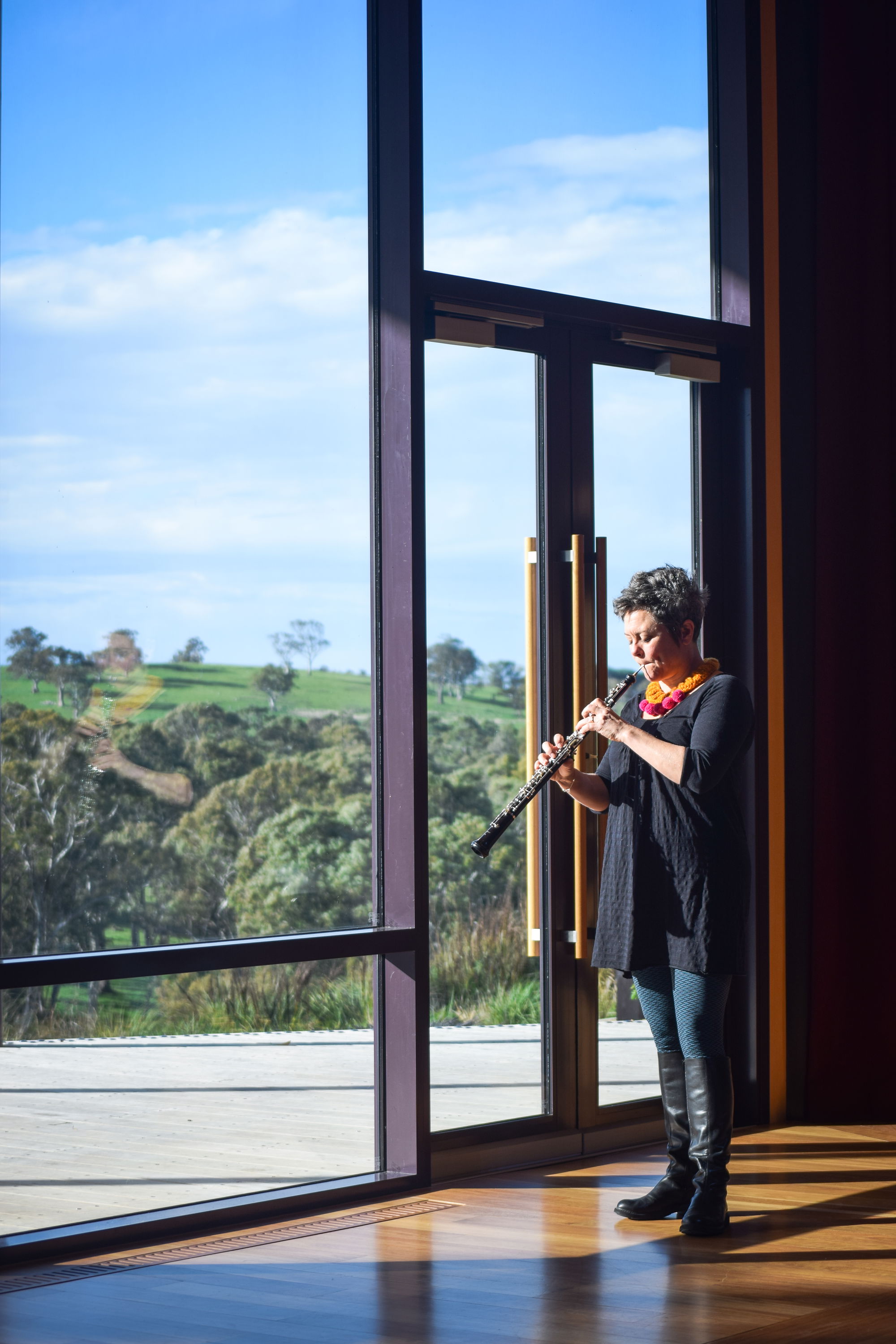
Your new work Starlit was commissioned by the Andrew and Renata Kaldor Family Foundation at the request of oboist Diana Doherty. How did you and Diana first meet? And how has your previous work with Diana led to this new work being presented at UKARIA in 2023?
Josh Batty, the brilliant flautist performing in this concert, was my original link to Diana. He was one of my friends long before he moved to Australia for the Sydney Symphony Orchestra job back in 2019. Around that time the hype around his playing was really taking off, and I was very lucky that he asked me to write a piece for his recital that year at the Australian Flute Festival. It was a really big event, and everyone’s first chance to hear his solo playing in Australia. Diana was in the audience and heard my piece, Filigree. Soon after, she invited me to write a wind trio for her, Josh, and Todd. The resulting work, Hat-trick, is the piece that opens this concert.
I’m guessing at that stage she was curious about what I’d come up with – I wasn’t particularly well known. Thankfully they all really liked Hat-trick, and a studio recording and premiere performance were slated, but COVID restrictions put those plans on ice. It wasn’t all bad though: in June 2020, the Sydney Symphony arranged a high quality video recording of the work. It premiered a month later on Facebook (of all places) and reached tens of thousands of people. In hindsight it was an important milestone in my career.
You’ve described that: ‘For me, the musicians are everything. They've spent years in the practice room, developing technique and an extraordinary capacity for musical expression. I can't ignore that – I want to engage with it. My aim is always to give musicians a vehicle to express profound musicality to their audience.’
In this chamber music context, I imagine it has been easier to engage with the individual musicians you are writing for, as opposed to writing for large ensembles. Did you have existing relationships with the other three musicians as well, before starting work on this commission?
I knew of Diana and Todd’s playing long before I met either of them or wrote Hat-trick. So I’d already heard the genius of all three musicians (and I’m not overstating that!) before I started writing the trio. I relished the pressure of trying to come up with something worthy of their musicianship. Really, I just wanted them to express all the qualities I loved about their playing when they performed my music. Having a second go at it with Starlit, this time with the wonderful Louisa Breen on board too, has been so exciting. Of course, I’m so grateful that Andrew and Renata Kaldor generously agreed to fund the commission!
The point you raise about chamber music is an interesting one. Yes, in a sense you can tailor your writing to the individual players more tightly, but with orchestral writing there’s a depth of shared experience and teamwork that is also so intriguing to a composer. I guess chamber music is a bit like tennis where you admire the individual skill and intricate communication between the doubles partners, whereas large ensemble music is more like watching a football team where whoever has the ball is a soloist (or is carrying the foreground material).
What do you enjoy most about writing chamber music, and what do you find the most challenging?
I think if you surveyed musicians, most of them would say they have the most fun when playing chamber music. I’ve seen many full time, salaried orchestral musicians go out of their way to start chamber music ensembles with their peers on the side, even if they’re not making any money from it. It’s a perfect balance when you think about it: a socially enjoyable way of making music and having that shared experience with others whilst retaining the feeling that your individual contribution is more vital than, say, being at the back of second violins in a Bruckner symphony.
As a composer, I love engaging with these motivations. There are constant opportunities to be inventive with your writing. Within a few seconds of music you can spotlight an individual player, then switch to an entirely different texture which requires intricate coordination from the whole group, and then switch focus again to a different member of the ensemble whilst a third member is preparing for their time to shine through a subtly building countermelody. The real challenge as a composer is that it’s so important to be engaging and meaningful in your writing because chamber musicians are aflush with centuries of masterpieces from the repertoire. If you write a mediocre string quartet, you’re very unlikely to get more than one polite premiere performance!
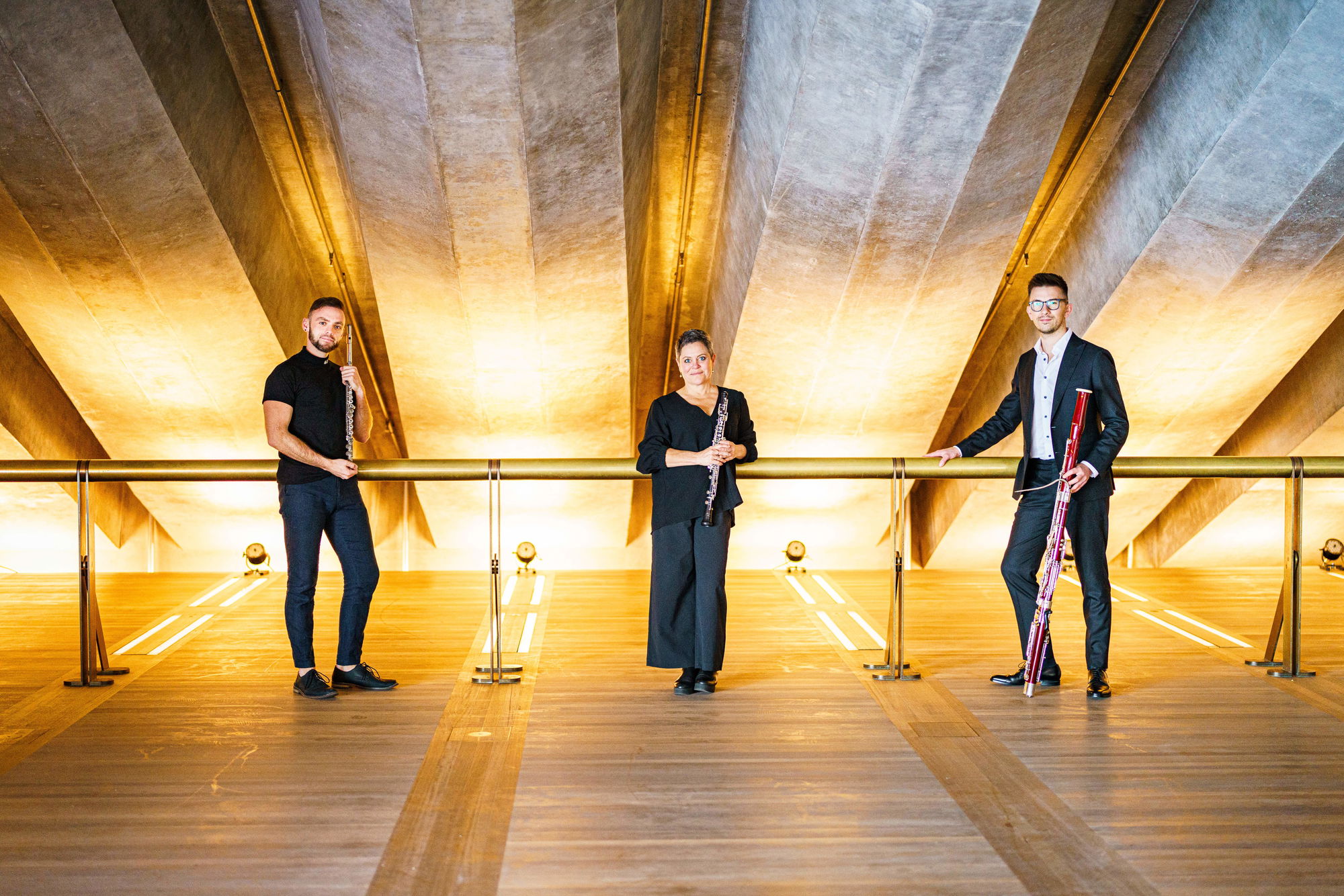
Did you have UKARIA in mind while writing this new work, and if so, do you think this influenced your musical decisions?
UKARIA is, in my opinion, a dream venue for concert music: architecturally stunning, a beautiful aspect, and an exemplary acoustic. South Australians are so lucky to have something like UKARIA – there’s nothing quite like it anywhere near Sydney! I can’t say I’m conscious of any particular musical decisions being influenced by the venue, but it’s definitely been in the back of my mind throughout the whole process of writing the piece. It’ll be interesting to see how it goes down in an afternoon concert as Starlit is a very night-time work, but I’m sure that the natural scenery of the Adelaide Hills will be a suitably evocative setting.
As a composer myself, I often think about repurposing my work for longevity – making arrangements of existing works for different combinations of instruments, for example, to further extend the life of those works beyond the premiere! What do you hope for Starlit’s life into the future?
I agree that securing repeat performances and recordings are very common concerns for a composer. I don’t think Starlit could be rearranged because the way I’ve written it is very dependent on the particular instruments it uses. However, I tend to rely on the musicians to champion the work after the premiere performance and I’m hoping Starlit will be no different. It’s not the smallest or most straightforward ensemble arrangement so it won’t be suitable for every chamber project these musicians do. But I do feel a strong affinity with them after several past collaborations and know that they have my back. Of course, many of my commissions for new works have come on the back of projects like this, so that can also be a really positive outcome from a premiere performance.




